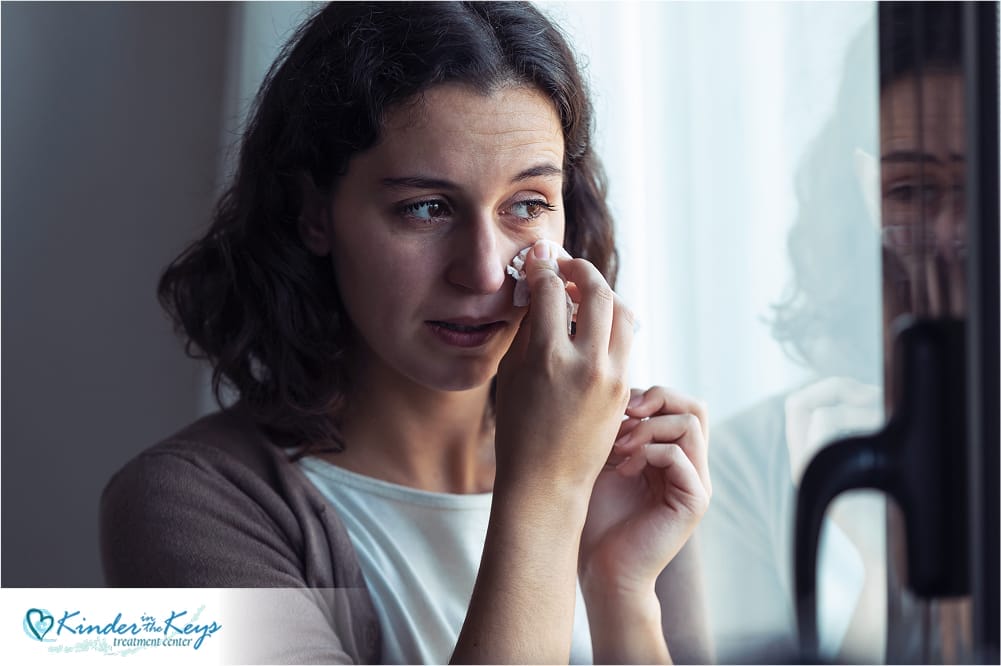Depression can feel like walking through quicksand—each step requiring tremendous effort, with the constant fear of sinking deeper. If you’re wondering how to get out of a depressive episode, know that you’re not alone. Major depressive disorder affects millions of people worldwide, and while the journey through depression can be challenging, there are proven paths toward healing.
Understanding What You’re Experiencing
Clinical depression, also called major depressive disorder, is more than just feeling sad. It’s a complex mood disorder characterized by persistent feelings of sadness, emptiness, or hopelessness that last at least two weeks and interfere with daily functioning.
It’s not always easy to tell if you are depressed, as symptoms can vary widely. Depression symptoms can vary widely but often include a depressed mood, loss of interest in activities once enjoyed, changes in appetite leading to weight loss or weight gain, difficulty sleeping or sleeping too much, fatigue, feelings of worthlessness, difficulty concentrating, and recurrent thoughts of death or suicide.
This isn’t a character flaw or something you can simply “snap out of.” Depression involves changes in brain chemistry and brain function, influenced by several factors including genetics, family history, stressful life events, medical conditions, and other mental health conditions like anxiety or bipolar disorder. Understanding that depression has biological roots can help reduce self-blame and encourage seeking proper treatment.

Recognizing When to Reach Out
If depressive symptoms are interfering with your daily life, it’s time to seek treatment from a mental health professional. This step often feels overwhelming when you’re in the midst of a depressive episode, but it’s the most crucial action you can take.
A healthcare provider, psychiatrist, psychologist, or licensed therapist can provide an accurate diagnosis and discuss treatment options tailored to your specific situation. They’ll review your medical history, current symptoms, and may screen for other mental disorders that sometimes accompany depression.
Remember: seeking professional help isn’t a sign of weakness—it’s a sign of courage and self-care. If you’re experiencing suicidal thoughts, please contact your local crisis lifeline immediately.
If you’re looking for additional ways to cope beyond this moment, you may find it helpful to explore practical strategies on how to deal with depression over time.
Evidence-Based Approaches to Treat Depression
Effective treatments for depression typically involve a combination of approaches:
Talk therapy (psychotherapy) provides a safe space to process emotions, identify negative thought patterns, develop coping strategies, and address underlying issues. Cognitive-behavioral therapy, interpersonal therapy, and psychodynamic approaches have all shown effectiveness for depressive disorders.
Medication may be recommended, particularly for moderate to severe depression. Selective serotonin reuptake inhibitors (SSRIs) and other antidepressants help regulate brain chemicals associated with mood regulation. Finding the right medication often requires patience and close work with your psychiatrist or healthcare provider.
For some people with depression, a combination of medication and psychotherapy works better than either approach alone. Your mental health professional can help determine the most appropriate treatment plan based on your symptoms, preferences, and medical history.

Lifestyle Changes That Support Recovery
While professional treatment forms the foundation of depression recovery, certain lifestyle modifications can significantly support your healing process:
Prioritize Quality Sleep
Depression often disrupts sleep patterns, yet sleep is crucial for mental health. Aim for seven to eight hours of sleep each night, maintain a consistent schedule to support your circadian rhythm, and create a relaxing bedtime routine.
Nourish Your Body
What you eat affects your mental well-being. Focus on a healthy diet rich in fruits, vegetables, lean proteins, and omega-3 fatty acids. Minimize processed foods, refined grains, and fried foods, which may worsen inflammation and mood issues. Some studies suggest vitamin D supplementation may help people with deficiencies.
Move Your Body
Regular exercise is one of the most powerful natural antidepressants available. Physical activity releases endorphins, reduces stress hormones, and promotes better sleep. Even gentle movement like walking or stretching can benefit your nervous system and overall well-being.
Manage Stress
Chronic stress can trigger or worsen depressive episodes. Incorporate stress-reduction techniques such as deep breathing exercises, progressive muscle relaxation, or mindfulness meditation that helps you focus on the present moment rather than ruminating on negative thoughts.
Building Your Support Network
Depression often whispers that you should isolate yourself, but connection is vital for recovery. Building a strong social support system might include:
- Sharing your experience with trusted friends or family members
- Joining a support group with others who understand depression firsthand
- Setting healthy boundaries in relationships that may contribute to stress
- Learning to accept help when offered
Being honest about your needs doesn’t burden others—it allows them to show up for you in meaningful ways. You don’t have to face depression alone.

Daily Practices to Manage Symptoms
Small daily actions can gradually shift your experience during a depressive episode:
Practice Mindfulness
Depression often keeps you trapped in regrets about the past or worries about the future. Mindfulness techniques bring your attention to the present moment, helping to interrupt the cycle of negative thoughts. Even five minutes of mindful awareness can create space between you and overwhelming emotions.
Create a Gentle Structure
When depression saps your motivation, a basic routine provides necessary scaffolding. Start with just one or two consistent daily activities, like a morning walk or an evening reading session.
Set Tiny Goals
Depression can make normal tasks feel insurmountable. Break activities into the smallest possible steps and celebrate completing each one. Success builds upon success.
Challenge Negative Thinking
Depression distorts thinking patterns, making everything seem more hopeless than it is. Practice identifying and questioning thoughts like “I’ll never feel better” or “Nothing helps.” These are symptoms of depression, not accurate reflections of reality.
Preventing Future Episodes
Once you begin to emerge from a depressive episode, taking preventive measures can help maintain your mental health.
Each person has unique patterns that may signal an oncoming depressive episode—changes in sleep, increased irritability, or withdrawal from activities. Recognizing these early can help you intervene before symptoms worsen.
Even as you feel better, continuing prescribed medication and therapy sessions is often crucial. Many people benefit from ongoing maintenance treatment to prevent depression from returning. For some, incorporating alternative depression treatment methods—such as mindfulness, yoga, or holistic wellness practices—can further support emotional balance and resilience.
Compile strategies, activities, and resources that support your mental health. This might include contact information for your mental health professional, self-care activities that help you feel centered, and reminders of previous successes in managing difficult emotions.
The Path Forward
Recovery from depression isn’t usually linear—there may be setbacks along the way. What matters is your overall direction and commitment to your well-being. Each small step you take to address your depression contributes to healing.
Remember that major depressive disorder is a treatable condition. With appropriate professional support, lifestyle adjustments, and daily practices that support your mental health, you can find your way through this challenging time.
If you’re struggling with depression, please reach out to our compassionate team of mental health specialists. We offer comprehensive assessment and personalized treatment plans designed to address not just your symptoms, but the whole person you are. You deserve support, and effective treatments are available. Recovery is possible—and you don’t have to walk this path alone.
